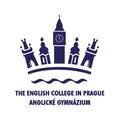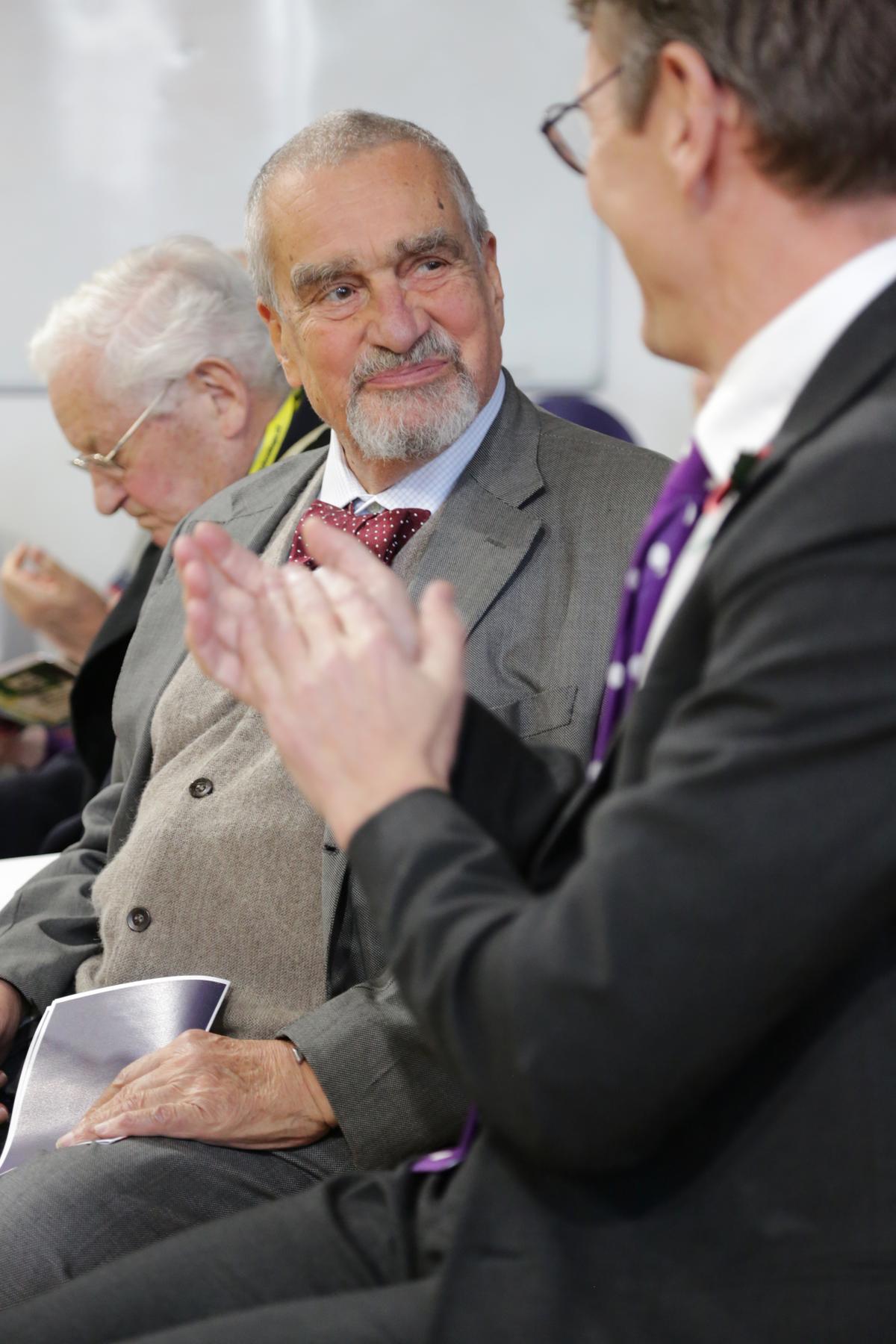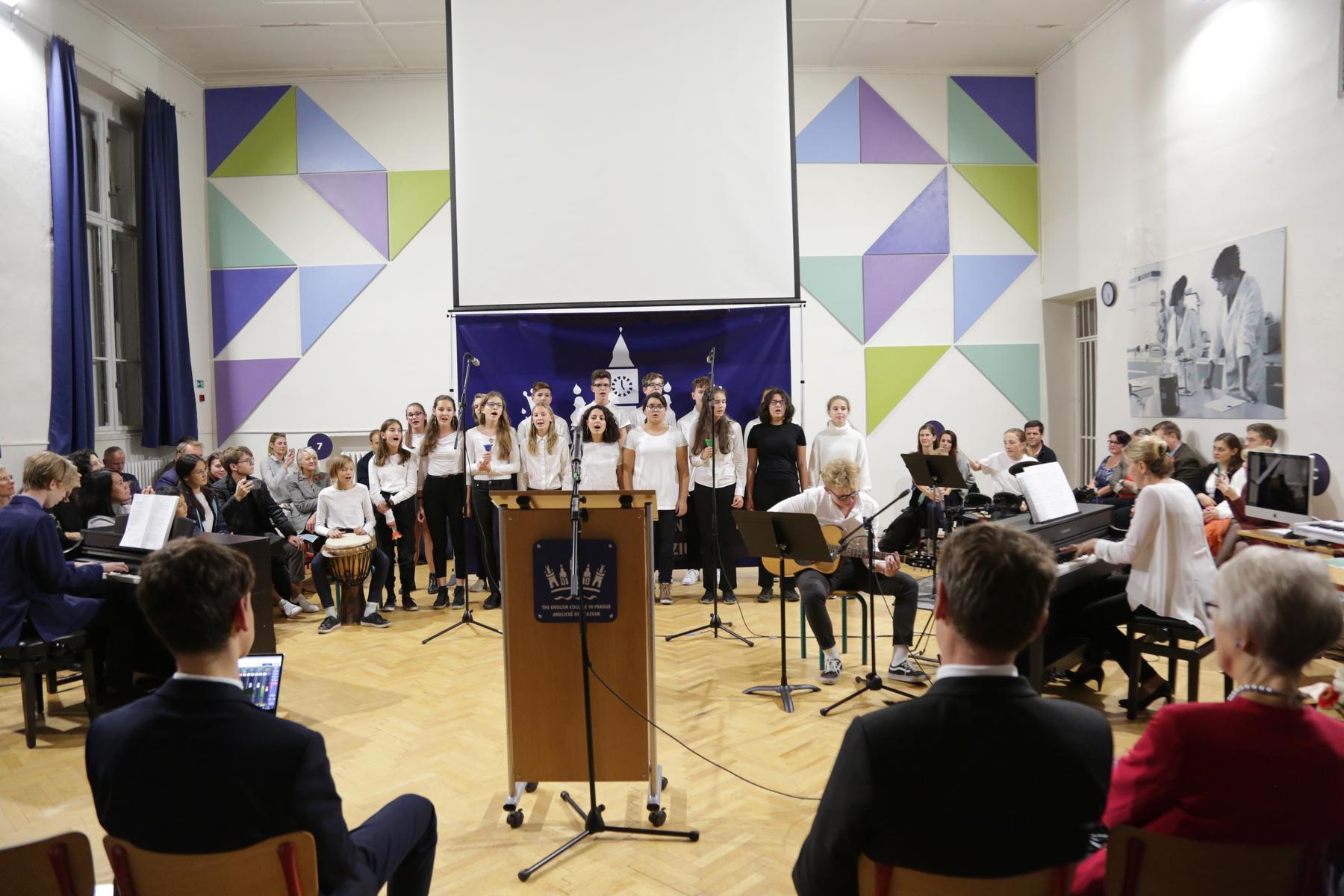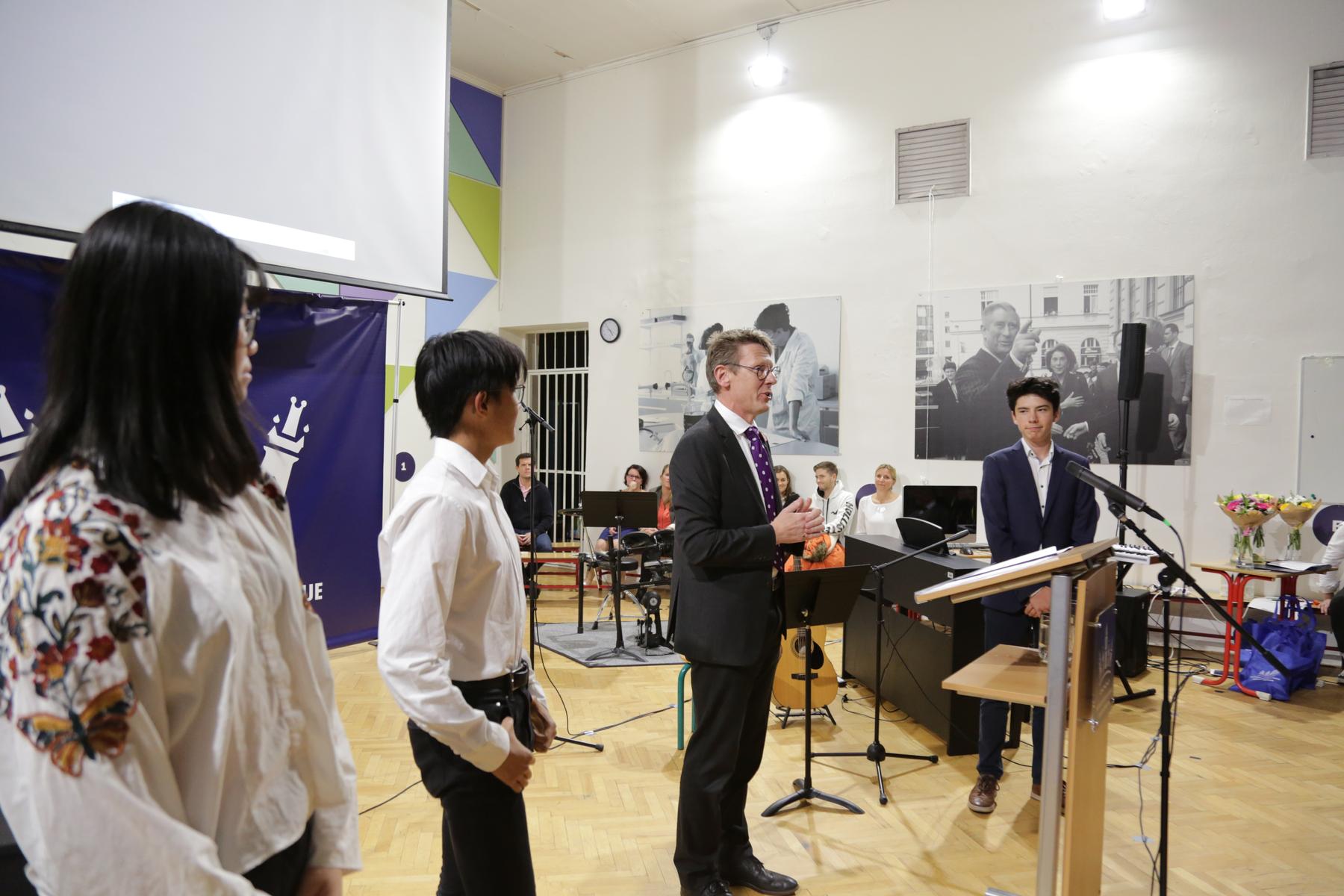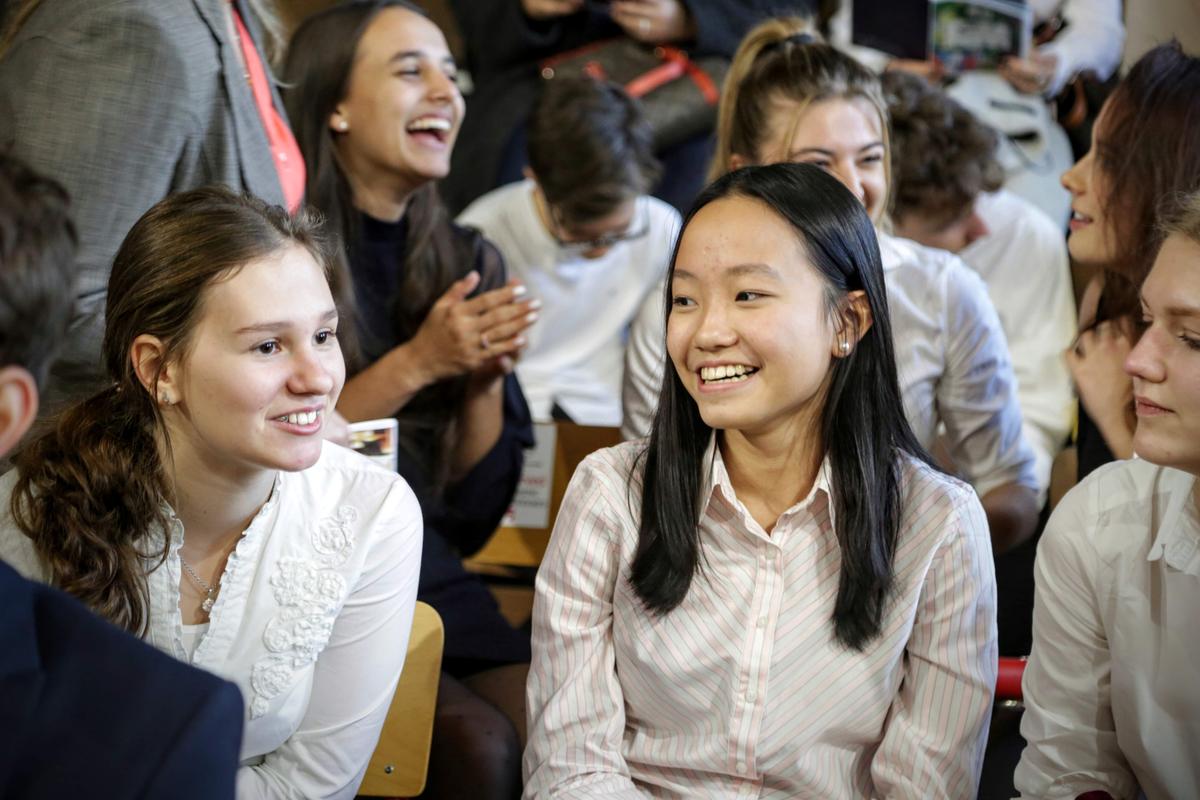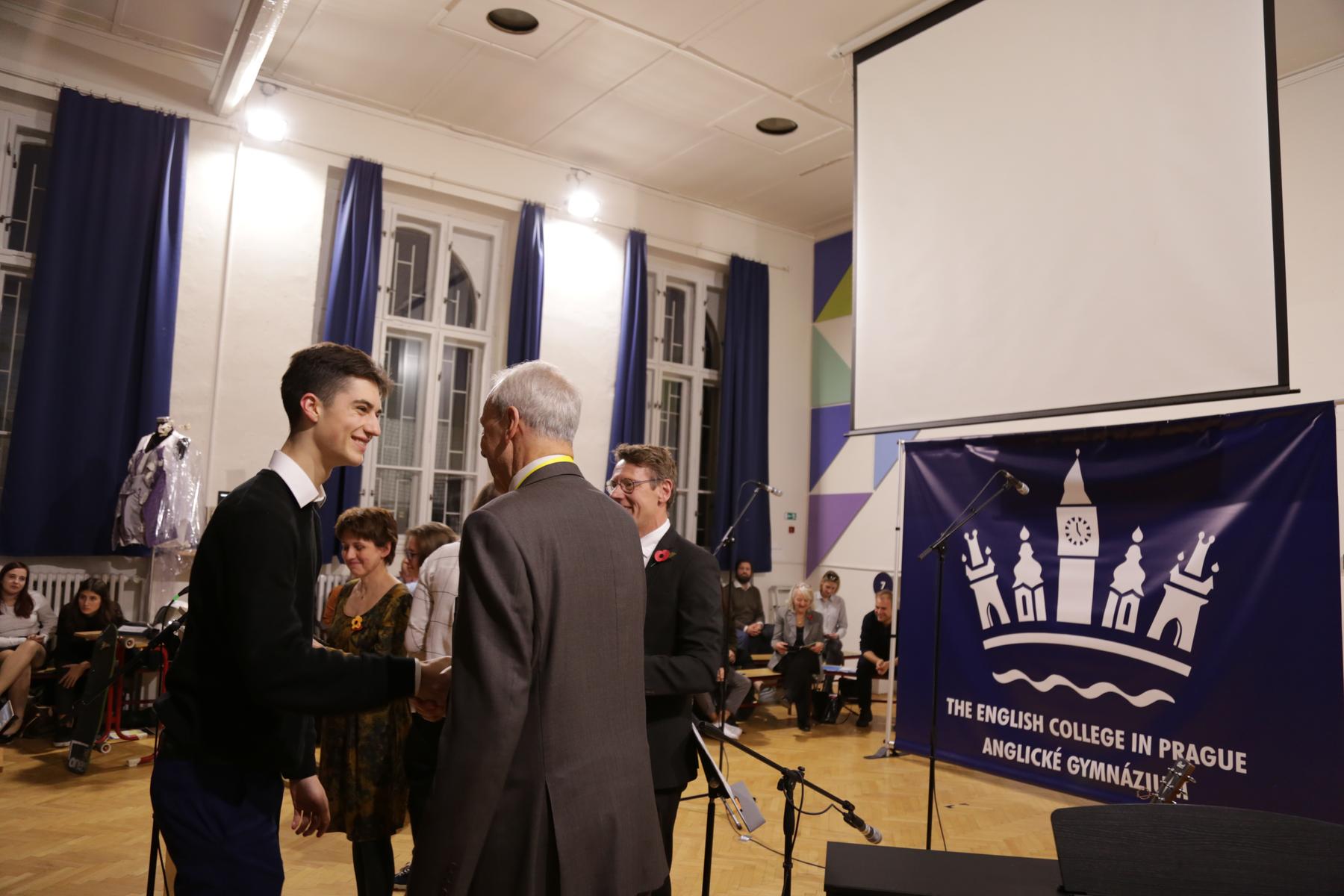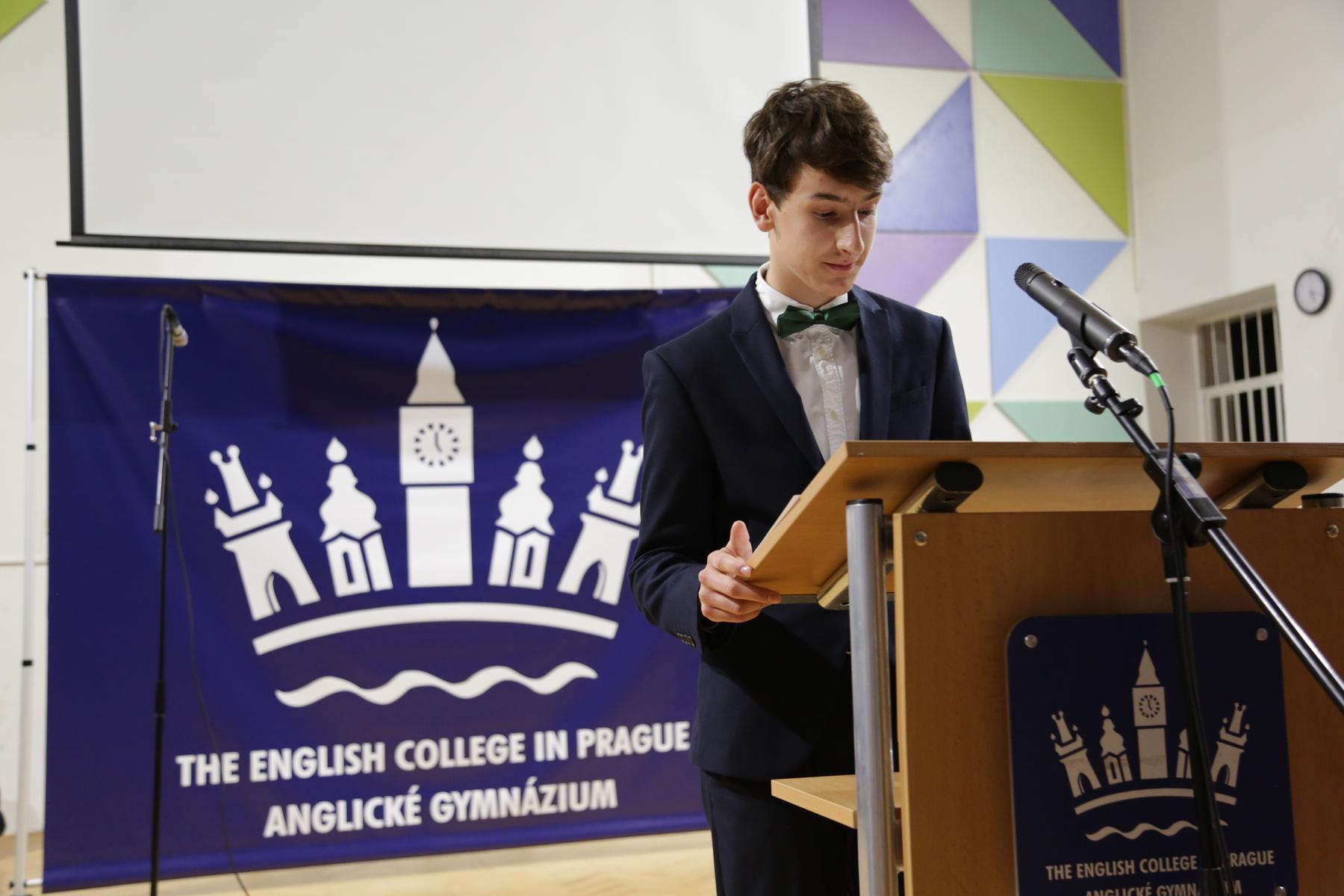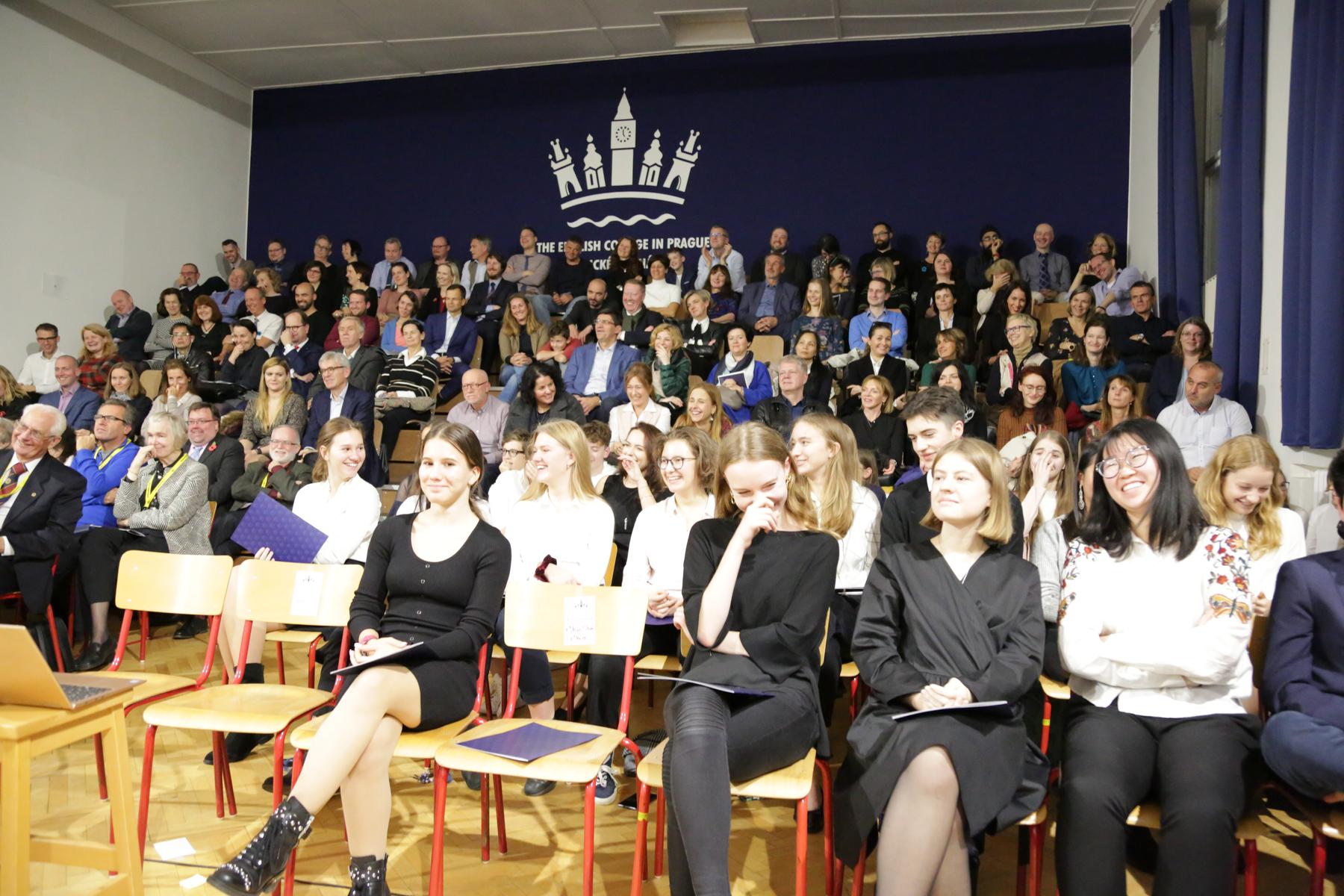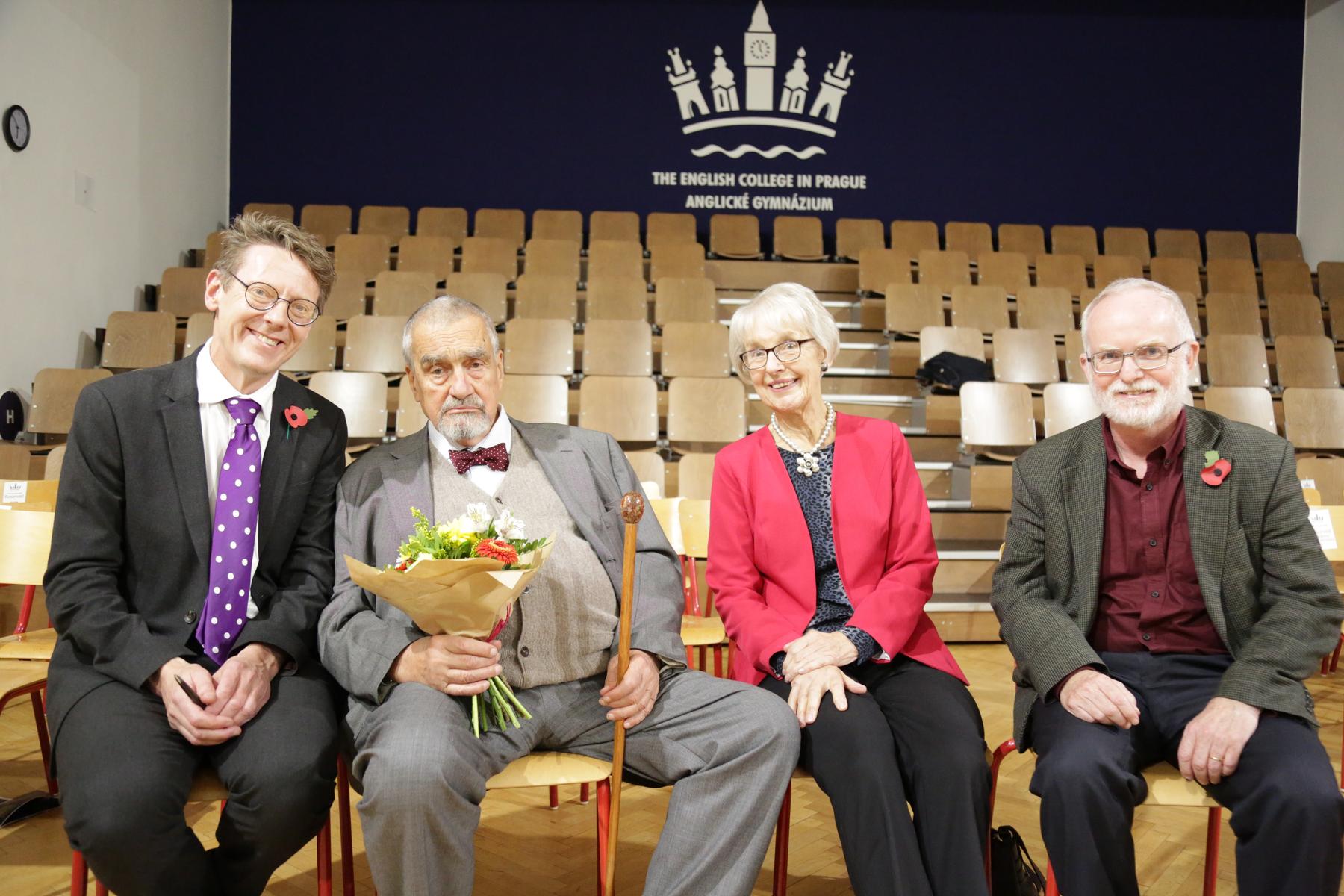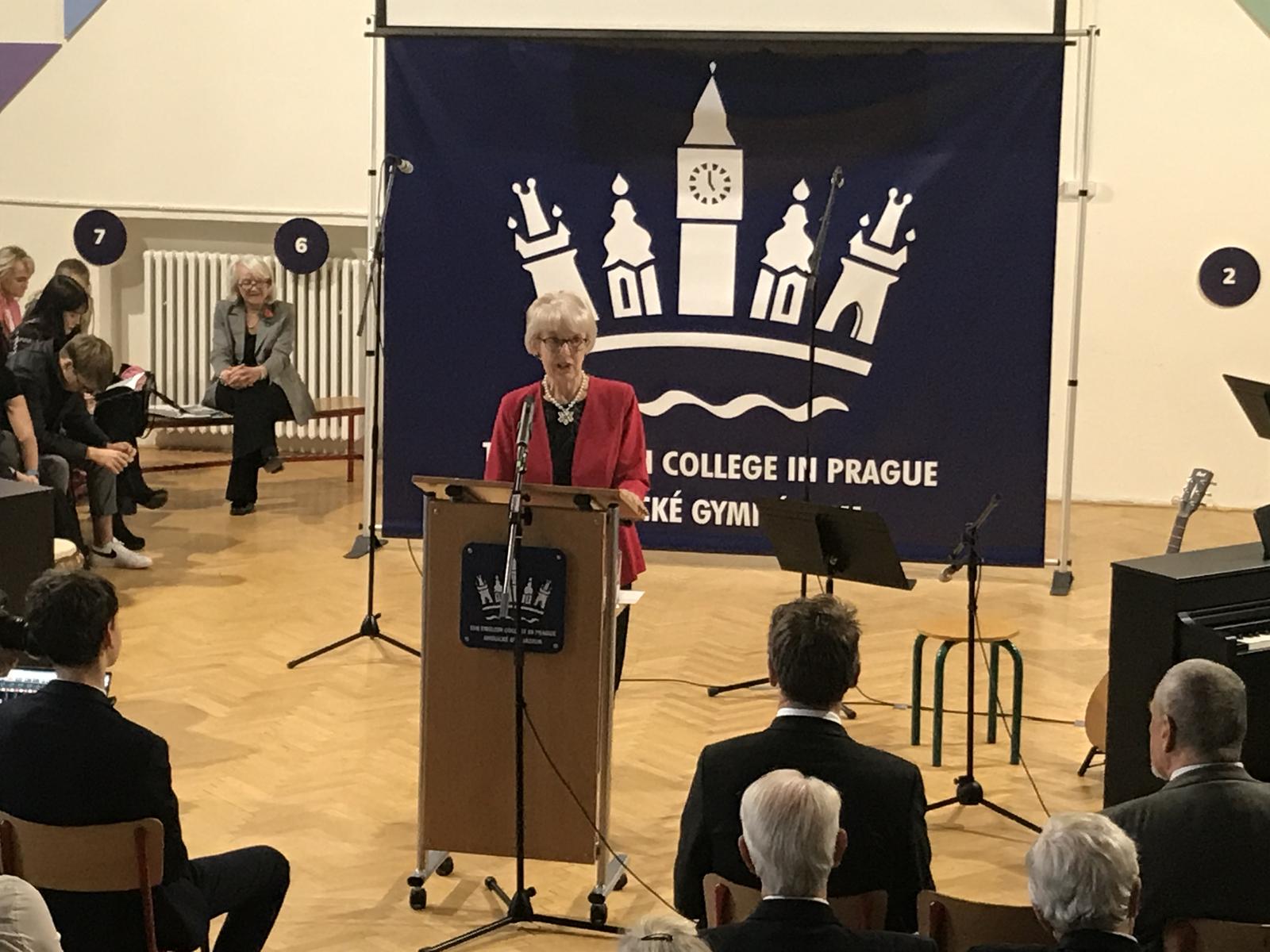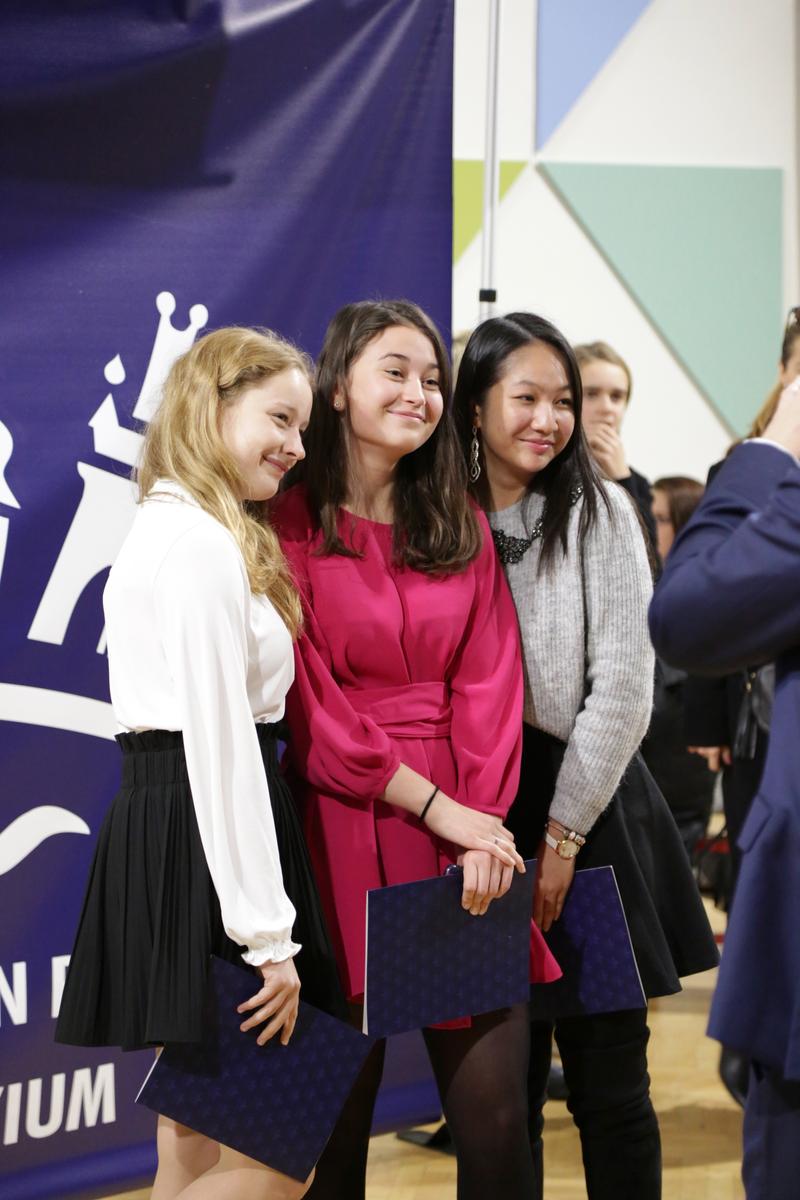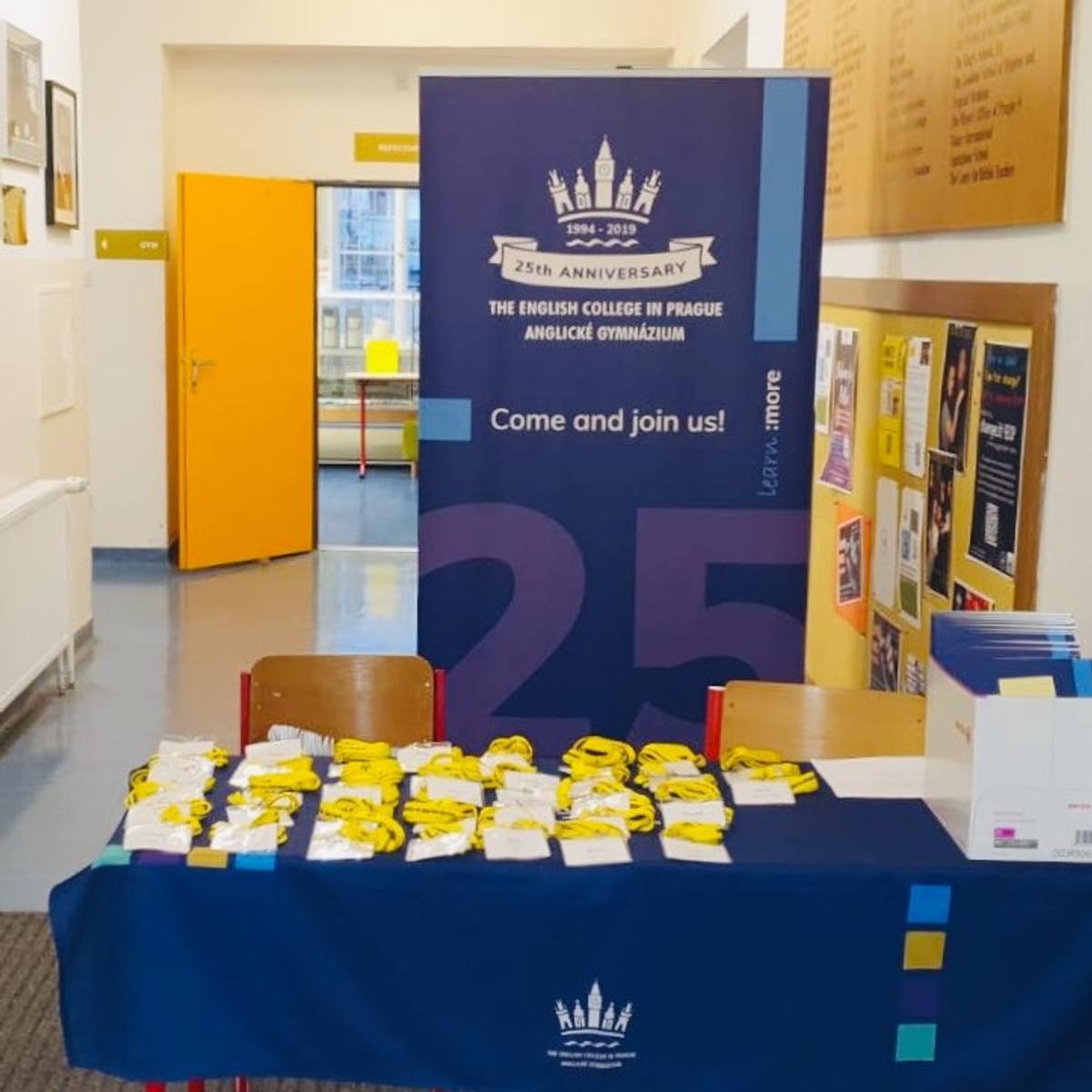25th Anniversary Founders' Day/Den zakladatelů školy

25th Anniversary Founders' Day/Den zakladatelů školy u příležitosti 25. výročí
Message from HRH The Prince of Wales on the occasion of the 25th anniversary of the ECP/Poselství prince z Walesu u příležitosti 25. výročí založení ECP
25th anniversary - a student's perspective/25. výročí školy - z pohledu studentky
On September 4, 1994, the blue door opened to students for the first time, while now it is an essential symbol of The English College in Prague. This year's 25th anniversary gave students, graduates, teachers and parents the opportunity to commemorate the history of the school and, above all, the principles that have remained almost unchanged for twenty-five years and contribute to the strong tradition of the College.
But the school's tradition goes back more than a mere quarter of a century. The forerunner of the English College in Prague was the Prague English Grammar School, founded in 1927. During the Nazi and Communist regimes, opposition ideas were somehow naturally concentrated here. During the Nazi occupation, the English Grammar School became a private school in which Jewish children took refuge. Eventually, however, the school was closed, and after a short restoration at the end of the war came Victorious February and the grammar school had to close down.
In 1990, the spokesman of President Václav Havel, at a meeting with the President and Secretary of State of the United Kingdom, raised the possibility of establishing a new British school based on the model of the defunct Prague English Grammar School. Four years later, the first headmaster, Mr. Hubert Ward, welcomed the first students to the school. This October, he returned to the English College to celebrate its 25th anniversary and delivered the same speech that students heard in 1994. Dressed in his academic gown, he impressed today's students with the dignity, seriousness, and truthfulness of his words. His speech carried a simple message. He hoped that the school would provide us with an excellent education and, above all, teach us the same principles and values, as were taught to our classmates 25 years ago.
So what makes the ECP different, what is it based on? Our teaching methods are based on discussion and critical thinking, just as they were all those years ago, and liberal and international attitudes and values are supported. Mutual communication among pupils, parents and employees is an integral part of school life. The English College is a solid community of like-minded people who value humanity and tolerance. I strongly hope that every student will absorb these principles after six years of study, and in the future, each of us will at least try to unite today's polarised world. May we, in the next twenty-five years, return to school and say that we have lived our lives through the philosophy that the teachers instilled in us. Think critically. Don’t be afraid to express your own opinion, but listen patiently to others. Help others. Do not tolerate unfair treatment.
Studying at the ECP gave me a new perspective on education. At other schools I did not find teachers so enthusiastic, experienced and willing to help. The 25th anniversary reminded me of what the school was trying to give us in addition to education and how I had to behave in order to represent it with dignity. To take full advantage of the development opportunities it offers me. Not only for academic advancement, but also for growth as a human being.
Emma Srnková, Year 4
4. září 1994 se studentům poprvé otevřely modré dveře, dnes již neodmyslitelný symbol The English College in Prague. Letošní dvacáté páté výročí dalo studentům, absolventům, učitelům i rodičům možnost, připomenout si historii školy a hlavně principy, které se po dvacet pět let existence téměř nezměnily a přispívají k silné tradici gymnázia.
Tradice školy sahá ale dál, než “pouhé” čtvrtstoletí. Předchůdcem Anglického gymnázia v Praze bylo Reálné gymnasium s anglickou řečí vyučovací, založené roku 1927. Za doby nacistického i komunistického režimu se sem jaksi přirozeně soustředily opoziční myšlenky a proudy. Během nacistické okupace se z Anglického gymnázia stala soukromá škola, ve které našly útočiště židovské děti. Nakonec byla ovšem škola zrušena, a po krátkém obnovení po skončení války přišel Vítězný únor a gymnáziu odzvonilo.
Roku 1990 tiskový mluvčí prezidenta Václava Havla, na schůzce prezidenta a ministra zahraničí Spojeného království, nadnesl možné založení nové britské školy, která by vycházela z modelu zaniklého Anglického gymnasia. O čtyři roky později vítal ve škole první studenty první ředitel, pan Hubert Ward. Letos v říjnu se vrátil do English College na oslavu jejího dvacátého pátého výročí a přednesl tu samou řeč, kterou slyšeli studenti v roce 1994. Oblečen ve svém akademickém taláru udělal na dnešní studenty dojem důstojností, vážností a pravdivostí svých slov. Jeho projev nesl jednoduché poselství. Doufal, že Anglické gymnázium nám poskytne excelentní vzdělání a hlavně nás naučí principům a hodnotám, stejným, jako naše spolužáky před dvaceti pěti lety.
Čím se tedy Anglické gymnázium liší, na čem si zakládá? Vyučovací metody se zakládají na diskuzi a kritickém myšlení, stejně jako před lety jsou podporovány liberální a mezinárodní postoje a hodnoty. Vzájemná komunikace mezi žáky, rodiči a zaměstnanci je nedílnou součástí školního života. Anglické gymnázium tvoří pevnou komunitu podobně smýšlejících lidí, kteří si považují lidskosti a tolerance. Pevně doufám, že si každý student po šesti letech studia tento princip vštípí a v budoucnosti se každý z nás alespoň trochu pokusí spojit dnešní polarizovaný svět. Ať se můžeme, za dalších dvacet pět let, vrátit do školy a říct, že jsme pokračovali v tom, co nám učitelé vštěpovali. Kriticky myslet. Nebát se projevit vlastní názor, ale trpělivě vyslechnout i ostatní. Pomáhat druhým. Netolerovat neférové zacházení.
Studium na Anglickém gymnáziu mi dalo nový pohled na vzdělání. Z jiných škol jsem neznala učitele tak zapálené, zkušené a ochotné pomoct. Dvacáté páté výročí mi připomnělo, co se nám škola snaží dát kromě vzdělání, a jak se musím chovat, abych ji mohla důstojně reprezentovat. Abych využila všechny možnosti k rozvoji, které mi nabízí. Nejen k akademickému postupu, ale i k růstu jako člověk.
Emma Srnková, 4. ročník
